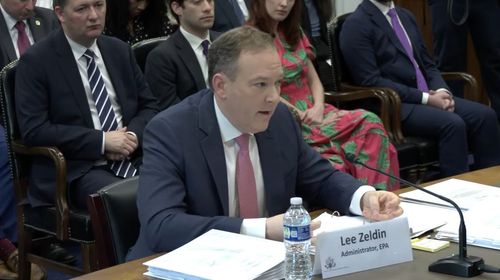The EPA and lawmakers are making significant strides in the RFS. From advancing RFS rulemakings to proposing continued critical tax credit extensions, both Congress and the EPA are signaling strong support for cleaner fuel initiatives. At RINSTAR, we’ve put together a quick roundup of the latest RFS developments that obligated parties and renewable fuel stakeholders should have on their radar.

Federal Actions and Legislative Support for Renewable Fuels
On the legislative side, there’s growing momentum to strengthen Renewable Volume Obligations (RVOs) under the RFS. A bipartisan group of lawmakers is urging the EPA and the Office of Management and Budget (OMB) to set ambitious RVO targets for 2026 and beyond. In a letter the group wrote, they emphasize the need for predictable blending requirements to support long-term planning across the renewable fuels industry. Specifically, they recommend setting the implied RVO for conventional biofuel at no less than 15 billion gallons and increasing the biomass-based diesel RVO to 5.25 billion gallons in 2026, with higher targets in future years to reflect rapid growth in renewable diesel production and soybean processing. The group also called on President Trump to prevent misuse of small refinery exemptions (SREs) and to ensure that any approved exemptions are properly accounted for in the RVOs to protect demand for farmers and rural communities.
At the same time, the House Ways and Means Committee has advanced legislation to extend the Section 45Z Clean Fuel Production Credit, originally part of the Inflation Reduction Act. Set to begin in 2025 and expire in 2027, this credit would be extended through 2030 under the new proposal—giving producers more financial certainty as they invest in low-carbon and bio-based fuel technologies. The credit starts at 20 cents per gallon for non-aviation fuels and 35 cents for sustainable aviation fuel (SAF), with the potential to increase to $1 and $1.75 per gallon respectively for facilities meeting prevailing wage and apprenticeship standards.
EPA Advances RFS Rulemakings and Addresses SRE Backlog
On the regulatory front, on May 14, 2025, the EPA has submitted two important RFS rulemakings to the White House Office of Management and Budget (OMB). One proposal sets the Renewable Volume Obligations (RVOs) for 2026 and future years, while the other seeks a partial waiver for the 2024 cellulosic biofuel requirements. Both rulemakings are now under interagency review, representing a step toward finalizing volume standards.
EPA Administrator Lee Zeldin has confirmed that the agency aims to finalize the 2026 and beyond RVOs in the coming months. He also acknowledged a large backlog of Small Refinery Exemption (SRE) petitions—169 as of May 2025—and committed to processing them more efficiently. Zeldin stated Actually, none of these [petitions] were getting approved at all in the last administration,” he said. “So, we want to get caught up. We want to get caught up as quickly as we can and we’re hearing from members of Congress who share that concern.
These recent policy and regulatory developments represent meaningful progress for the renewable fuels industry. At RINSTAR, we’re encouraged to see lawmakers advocating for strong, consistent blending standards and extended tax incentives that support long-term investment. We’re also pleased to see the EPA taking active steps to update RFS regulations and address exemption reviews—efforts that reflect the attention and clarity the RFS program needs moving forward.
At RINSTAR, we’ve been closely monitoring developments in the Renewable Fuel Standard (RFS) for over 15 years. We’re dedicated to helping you stay informed about key updates and policy changes. To stay up to date, we encourage you to and check out our other blog posts.
